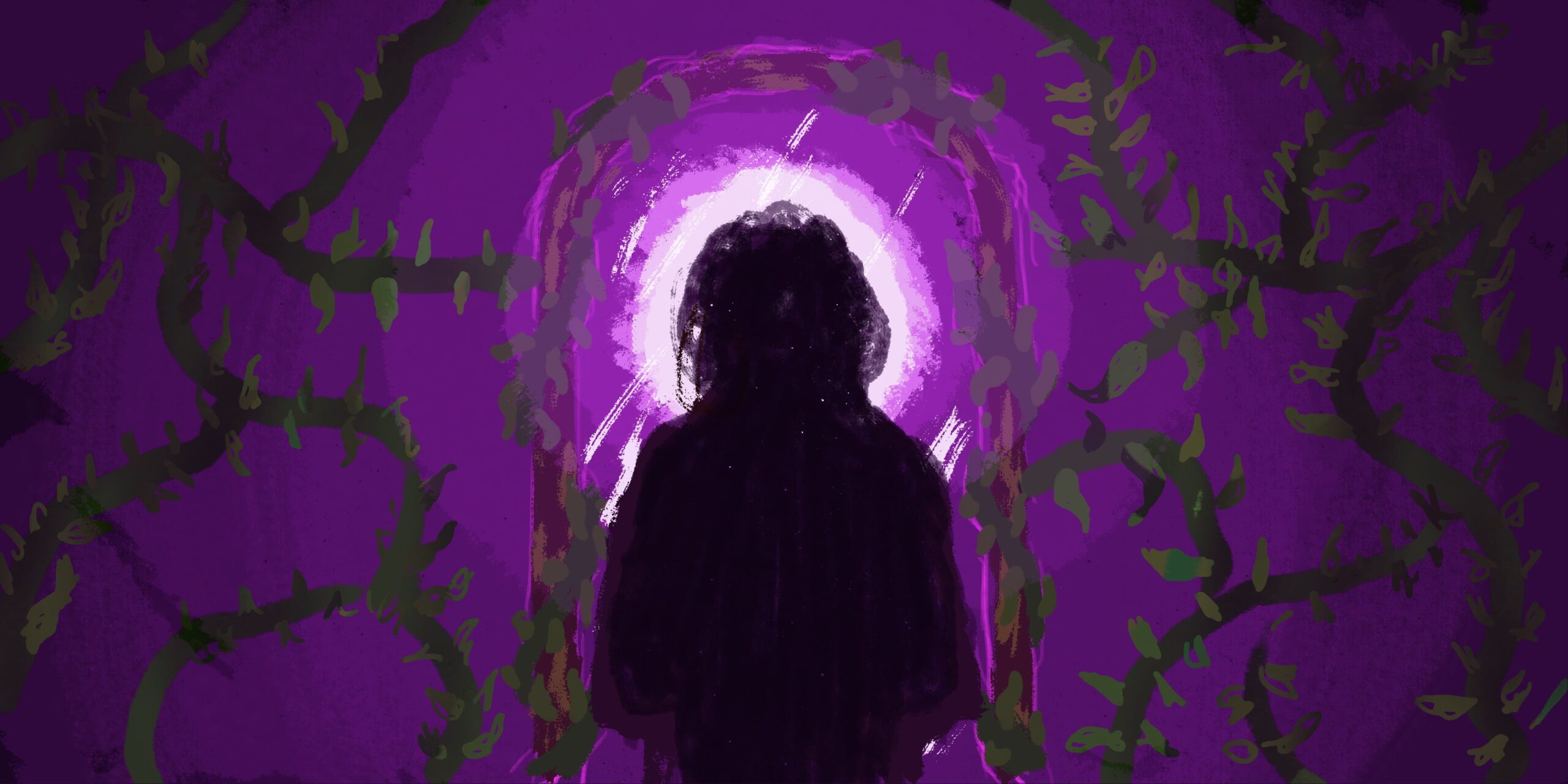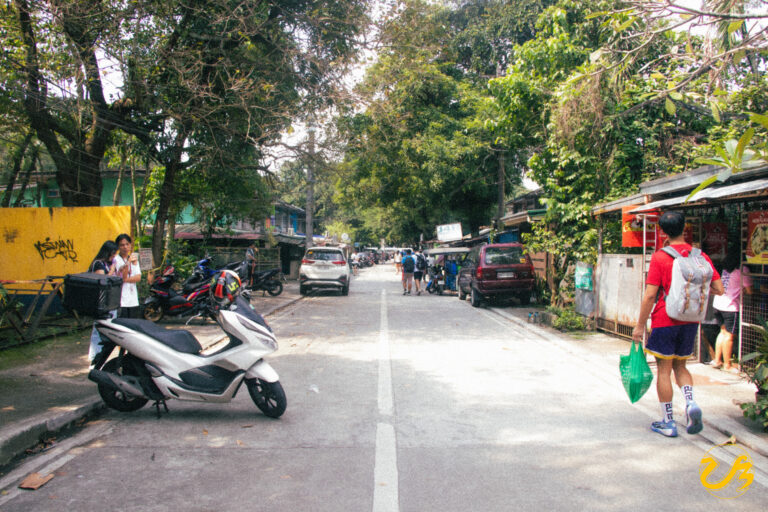
trigger warnings: dysphoria, misgendering, social anxiety, mentions of sexual harassment/assault, mentions of internalized transmisogyny, mentions of transphobia, mentions of murder
Who’s the Old Slewfoot Who Took You From Me?
I still remember a lecturer at the start of one of our semesters wondering what to do with these new names. “What’s this column? ‘Lived name’?” They squinted a little at the class list. “Is this new?” Several people mumble. “Can I know who filled this out and what it’s for?” I meekly raised my hand. “What is it for?” They repeated. At this point my fight-or-flight had kicked in and I was in very little state to answer. I am unsure what I said or if someone else answered for me. But I remember clearly the words that followed— “Ah, well, I’m not gonna remember this. I hope you know that. I’m getting a little old.” —along with the silence of every other person in that room after.
Part of me was mad this was all I was going to get after manypeople had worked hard to institute lived names into CRS. But the rest of me was placated by an extensive and well-trained discipline that simply said, “it’s not worth it”. That whatever followed this argument was not worth it. Even now, I bear no ill will for the lecturer. But I often look back on my extremely tempered response and see a kind of cowardice— because that trans woman discipline had denied me of myself. For the supposed sake of safety. For the avoidance of a pithy conflict. For the comfort of being able to sit in that class with no targets and no temperance.
And yet, despite that wavering, what still haunts me now is not even our lecturer’s reply or my lack thereof— it was just how quiet everyone else ended up being. How in one fell swoop, at the first sign of resistance, every ally fell back into the line of comfort, to tenderly look away from the status quo, while every trans person in that room was left to fend for themselves. With a class like this, though, can you fault them? Why fight? I suppose I stymie myself the irony of the social science student meeting her humanity. Because even after that class, no one checked on me nor looked me in the eye either.
It’s no surprise then that, even in spaces of alleged solidarity, even in a protest full of people fighting for your rights, how vapid and empty it can feel when, just five days later, someone in the same crowd is on Twitter is reducing “AMABs” to their biological makeup, genitalia, and hormones, stating nonchalantly that such a physiology, such assignment at birth makes you immutably someone you’re not. And who are you to argue? Your cis peers— they have used their energies to protest for many things. While you? You are paralyzed and isolated by your dysphoria— how could you speak so poorly of them? And so the trans girl is quiet.
Her internalized transmisogyny chimes in, “who are you to tell realwomen what they struggle with?” But I’m sure you’ll make a funny face when I tell you those hormones you take will give you period cramps too. Or that trans women share more traits of their childhood with women than men, even when “socialized male” as some allege. But she’ll be quiet anyway. “Because if you say something, won’t that be so male of you?” The voice says. And so she doubts. Because who else is there to blame?
Cried Out Private Presley, She Swayed Like the Trees
To tell the truth, my transness is a traumatic part of my life. There is significant despair in placing who you are on top of the cabinet for no one but yourself to see. In looking in a mirror and finding someone you don’t recognize. In hearing an old, dusty name or being pointed out as a man and feeling a thousand things before politely making a correction. Transness can be joyful, of course. I still remember the overflowing hope I found in my heart when I first realized I could take hormones and finally feel like myself in front of a bathroom mirror. I memorize the unspeakably bright feeling of finally recognizing myself in a photo and in someone else’s hands. And I know intimately how someone’s eyes can look straight into mine and know they see me fully as a girl. I can summon the memory of that incomparable lightness in my chest when it happened. But to be trans also means fighting to own yourself. It means learning to deny the world the right to tell you who you are and who you should be. And to fight so hard, day in, day out, just to be seen and recognized— it takes a toll. And often, I tire. I tire seeking love and sight.
A byproduct of this exhaustion is, when people get close to me, and a number of trans women, especially early-transition trans women, there is a kind of vulnerability to many of us. You will notice that many of us are trying their best to minimize ourselves, to be accessible, be useful. This tenderness is a consequence of our previously-mentioned learned helplessness: to be safely yourself, you must assimilate into the cisgender experience as gently as possible. And so, when we enter relationships, we are often submissive and reluctant to push back on friends and partners. (Coincidentally, there is a significantly higher rate of sexual assault of trans women. Probably unrelated. Forget I mentioned it.)
The denial of trans emotions is doubly worse in intimate relationships for the young trans woman. She is wont to doubt herself, sometimes to the point of warping her memories of encounters. Her trauma, the weight of her blame— it reminds her of her “place”. Then the relationships that follow rest their safety on her trauma response, bolstering her placement in socialities. Because she learns this is how people “like her”. This is how she earns that validation she needs. She becomes known to minimize herself, to give everything she has for just a little more love, to overextend herself to the point of self-neglect in hopes someone sees her. Often, this trauma of intimacy is compounded by other personal traumas— by complicated relationships with families, by assaults or violences she sees for being herself, or by nursing the emotions of men in her life— which make her even more vulnerable. And if you haven’t quite caught it yet, I am describing the perfect victim for exploitation.
Of course, I make no accusation that those who get close to her intend to exploit her willingness to take everything lying down. But the truth is, many people will nestle in her space and take up as much as they can of her. Because she allows them to. Because she doesn’t know any different. Because it gets her the name, and the safety, and the appeasement and stability of friendship. All at the price of everything else. And for someone who wants to be known and understood, isn’t that such a good deal?
If this is you, if you’re this girl, I want you to know that you’re allowed to take up space. You’re allowed to be yourself. You are not just a stew of everything everyone else wants for you. You have your whole self to find and your womanhood is something uniquely yours to behold. It doesn’t matter what anyone else says— your transness does not die just because someone else refuses to see you. Your heart will not perish nor will you become monstrous if you reject someone who refuses the reality of your personhood. Because your “no” will not change how caring friends view you. And any well-intentioned partner who cherishes you will understand and meet you where you are. You deserve safety without preconditions and expression without needless policing. You deserve a community where your name is yours and you find a togetherness without a taut and choking temperance. You should not have to be palatable, marketable, or acceptable to a cisgender audience to be loved. Because you deserve love where you are and wherever you are headed. And I want you to learn nothing different. You are not a monster nor are you cursed. You are not disfigured nor born in error. You are eminently lovable. And, from where I am, I already love you in all your forms. You deserve to be with people who do, too. You should not have to be a doormat, a paperweight, or a sex object to feel whole. You deserve to be a full person and your transness has taken nothing away from your ability to do so. It is a part of you— a beauty and uniqueness that makes you whole. I hope you never forget this.
And if you have a trans woman friend and you care about her, make sure to double-check. Be sure you are not using up everything she has and is. Tell her you love her even when she says no to your requests. Even when she needs space away. Even if she’s burnt out being herself. Because the world has denied her hearing it from everyone else and it is part of your charge, as her friend, to assure her that which she forced to doubt. And if you refuse, then I don’t need your solidarity. If you can’t offer the trans women around you some relief as people fighting to be themselves, if you can’t love them without their utility or object to you– then perhaps you don’t love her at all. Because I don’t want you fighting for us if you think trans rights are not important enough to be part of your analysis. Because transness is not just another label. It is an intimacy we bare to the world for the right to be ourselves. The trans women who have had to grow from this trauma— those of us trying our best to give our sisters a future without these fears— we’d rather fight alongside one other ourselves than be a pawn for your posturing and politics. Trans women have been forced into indignity and erasure time and time again. We deserve better. Don’t you dare forget this either.
Because, like I said over and over again, trans women are some of the most disciplined people I’ve ever seen. They have had to learn everything else to survive a cisnormative world. And so, whether in quiet or in prayer, we leave our wishes in earnest:
May we never have to learn how to talk down a GI with a loaded gun. May we never have to be arrested for the lust we’ve had to sate for safety. And may we live on without the need to place our suffering on Twitter or some other social media, for someone else to save us.
May we be allowed a passing at 17, left alive and well for the 74 years after, and buried unremarkably with our name at 91. May we be loved tender, like what keeps you well, without fear our friends will turn. And may we perish the soldier-like discipline and submissive smallness asked of us to survive and be loved.
With our hearts in solemn solidarity for those who came before us and for those who will succeed us, may all this anguish be replaced by hope and an unflinching community she deserved all along. In hopes she no longer doubts. In hopes she no longer blames herself. In hopes the voice inside her quiets and she finally sees herself in a mirror— unflinchingly and unapologetically,a woman.






